Living off the Grid? These 8 Essential Off Grid Living Tips Will Help
You're free to republish or share any of our articles (either in part or in full), which are licensed under a Creative Commons Attribution 4.0 International License. Our only requirement is that you give Ammo.com appropriate credit by linking to the original article. Spread the word; knowledge is power!
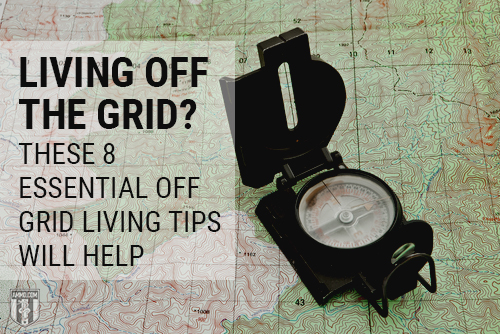 Living off the grid can be extremely difficult, but also extremely rewarding. Few things are more in line with the spirit of American liberty than living completely unbeholden to the government and big corporations – and going off grid gives you that freedom. While everyone else is complaining about government overreach, corporate consumerism and Wall Street banksters, you’ll be moving your life away from the rat race. And when our economy, politics or social structure take a turn for the worse, you and your family will be in a far better position to weather the storm from your off-grid locale than your former neighbors.
Living off the grid can be extremely difficult, but also extremely rewarding. Few things are more in line with the spirit of American liberty than living completely unbeholden to the government and big corporations – and going off grid gives you that freedom. While everyone else is complaining about government overreach, corporate consumerism and Wall Street banksters, you’ll be moving your life away from the rat race. And when our economy, politics or social structure take a turn for the worse, you and your family will be in a far better position to weather the storm from your off-grid locale than your former neighbors.
Off-grid living isn’t for everyone. But for those willing to make the extreme life change, it will lessen your growing dependency on income and increase your time spent with family. This guide will walk you through the reasons for an off-grid way of life, how to attain it, and the benefits of becoming the ultimate survivalist.
How To Live Off The Grid: A Way of Life
Off-the-grid living isn’t a minor modification to your way of life – it’s a way of life in and of itself. While you can be a survivalist and still maintain your 9-to-5 lifestyle, living off the grid is a full-time job and a radical departure from the wage-earning grind most Americans subject themselves to. You’re not just prepping for something big, reducing your spending or growing a little victory garden – you’re forgoing public services and providing for yourself.
But before you start setting up your modern-day homestead, you’re going to have to think about some big questions:
- Will you be using electricity? If so, how will you be generating it?
- Where will you get water?
- Will you need to process or treat the water to make it potable?
- How much money will you need?
- Where will you get it from?
- How will you access the Internet if you still need it?
- How many people will be members of your community?
- How will labor be divided throughout the community?
- Will you be buying food, or growing and hunting it?
- How will your off-the-grid community be defended without law enforcement officers?
As you can see, even looking at this list of questions can feel a bit daunting. And this is just to make an initial informed decision. Once you make the actual decision to go off the grid, it’s going to get a lot harder. Living off-grid has a lot of up-front investment required in terms of time, money and energy. But once you get the project up and running, you’re probably going to feel great about walking away from the rat race and connecting with the land.
Picking Location and the Best States for Living off the Grid
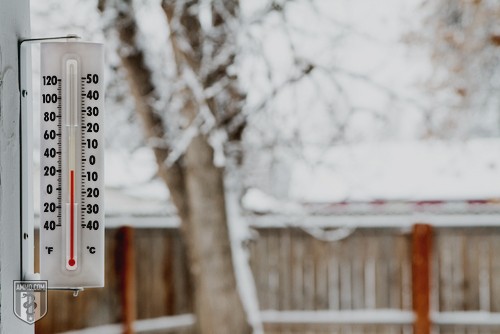 Speaking of land, the first question you have to answer if you decide to live off-grid is where you plan to do this. Nearly everywhere in the continental United States has something wrong with it in terms of living off grid. Some places are too dry, and some aren’t good for growing food. Other places are too close to cities, while others are in nuclear fallout zones. Some states have laws making gun ownership and off-grid living prohibitively difficult. And others are just too cold to sustain wildlife.
Speaking of land, the first question you have to answer if you decide to live off-grid is where you plan to do this. Nearly everywhere in the continental United States has something wrong with it in terms of living off grid. Some places are too dry, and some aren’t good for growing food. Other places are too close to cities, while others are in nuclear fallout zones. Some states have laws making gun ownership and off-grid living prohibitively difficult. And others are just too cold to sustain wildlife.
So what should you look for when it comes to picking the three most important factors in off-grid living: location, location, location?
- Be at least a tank of gas from a highway.
- Research natural disasters that frequently befall areas you’re interested in.
- Look into less-common, but entirely probable, natural disasters.
- Read about nuclear fallout patterns. Nuclear war might not top your list of concerns, but you should at least be informed.
- Consider whether or not you want to be part of an existing community and where you can connect with one.
- If you plan to use solar power, make sure the area gets plenty of sunlight.
- No matter what your plans are, you’re going to need water. That means proximity to a river or stream, a good supply of groundwater or, at the very least, plenty of rain.
- Hunters should research local and state hunting laws.
- Friendly gun laws are an absolute must when it comes to living off-grid, which rules many states out.
- In general, a small-government culture will help keep you from being prosecuted for “stealing” rain water.
- Good soil is a must to grow your own food.
- Shelling out big money for land defeats the purpose, so look for cheap land.
Basic considerations to make with regard to region and weather:
- Northeast: The Northeast is generally not considered for off-the-grid living because of government red tape, liberal culture and the fact that it’s just so darn cold. But more people are looking into New Hampshire (a libertarian mecca) and Maine (lots of empty space).
- Midwest: The Midwest / Great Lakes region suffers from some of the same problems as the northeast. Populations are high, areas are congested and there tend to be unfavorable laws for liberty-minded people. It’s also cold like the Northeast, though once you get out of the big cities, the population is much more sparse.
- The South: The South is hot and has a lot of rural areas for you to get away from people and grow your own crops. A conservative political climate means a more “live and let live” attitude, as well as little in the way of gun regulations. What’s more, southerners are known for their friendliness and there’s no survival asset more necessary than friendly neighbors.
- Great Plains: The Plains are the best place in America to grow cops, and you’ll find no shortage of fish and game. However, the firearms laws are a mixed bag and there’s also a higher risk of flooding and tornados. Also, the Plains aren’t a great area for defense because of the flat terrain.
- Southwest: The Southwest has a great culture of liberty, however even in the best areas for growing food, there’s always a risk of drought.
- Northwest: Another area with a strong culture of liberty is the American Northwest, with plenty of wild game and wide open spaces. The gun laws will vary, but are mostly friendly. It gets cold in some places, but even in winters, there are parts that aren’t too frigid.
Off-Grid Transportation
Once you decide where you’re going to live, how will you get there? Access is likely not a problem in the middle of a big city or in a close-in suburb. But when you’re living off the grid, there may not even be a road that leads to where your home.
A 4x4 truck is a necessity when living off grid, ideally an older truck that you can maintain and repair yourself with a basic set of hand tools. American vehicles are best, as GM parts tend to be cheapest, followed by Ford. You’ll want other forms of transportation as well for getting around your own property. Snowmobiles are a must if you’re living somewhere that gets a foot or more of snow on a regular basis. (Speaking of snow, how are you going to remove it? Snowplowing is going to kill your truck, so either use a secondary vehicle or look for someone who can do it for you, either for cash or for barter.)
Motorcycles can be great for getting in and out of town or around your own property when the weather is warm and you don’t have much to carry. They’re easy to maintain and don’t use much gas. And don’t look past low-tech solutions for getting around, like bicycles and cross-country skis. You’ll burn calories and reduce the amount of chemicals you’re putting into the air. For the off-grid enthusiast who also wants to live a green way of life, this can be the best option to get you through 90 percent of your travels, depending on how far you are from civilization or how often you need to go there.
Developing Your Own Off Grid Water System
Water is the number one resource you’re going to need. That water needs to be clean, close and plentiful enough that you can access it year round for everything from drinking to watering crops.
Fortunately, you have a variety of options when it comes to how you get your water. Drilling for a well can be expensive, but it’s a safe and reliable way to make sure you always have enough. Springs and surface water are other sources, but are obviously stationary. Rain water collection is unpredictable and melted snow is not a year-round option in most areas.
The best plan will combine two or more of these. For example, you can drill a well, but be able to locate groundwater within a one-mile radius. Another option is to build your home near a stream and know where there’s a mountain with snow caps nearby. Having as many irons in the fire with regard to water is always a good idea.
Off Grid Food: Grow It, Gather It, or Hunt It
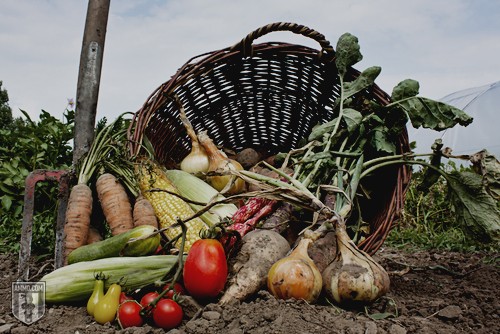 Crops are a must when living off grid. And much like water, it’s important to have multiple ways to access food. That means three main sources: growing, gathering and hunting.
Crops are a must when living off grid. And much like water, it’s important to have multiple ways to access food. That means three main sources: growing, gathering and hunting.
- Growing: What you can grow varies from one place to another, as does when you can grow it. Knowing the ideal climates for the production of a variety of foods is essential for having enough to eat.
- Pest Problems: Everything from insects to deer are likely to get to your crops before you do. Preventative measures, natural pesticides and physical deterrents like fences are going to help ensure that you eat most of what you grow.
- Watering: Having enough water for yourself isn’t enough – you also need to get water to your crops.
- Gathering: The good news is there’s probably plenty of edible food growing near where you live – that includes nuts and berries, but also honey and other fruits. You should know where to gather food as a supplementary source, as well as a source for calories in the event of a catastrophe.
- Shopping: Living off the grid doesn’t ban you from engaging in commerce, it just means that you’re not relying upon the power and water grid for supplies. Visiting the local farmer’s market can fill in the gaps in your food supply, and also allows you to make friends and allies in the local community.
- Hunting and Trapping: Wherever you choose to live will almost certainly have its own wildlife for you to trap and hunt – and a single elk goes long way. Since freezers are not an option, you’re going to have to learn how to store food without that level of energy impact.
- Fishing: If you’re living off-grid, there’s a good chance you have a body of fresh water near you. And that means a nearly endless supply of food. Although there are various survival fishing strategies, opting for a passive style frees up your time while providing an easy-to-harvest dinner.
- Domesticated Animals: You can also keep animals both for slaughter and for other purposes. For example, goats are an excellent supply of milk as well as free range, organic lawn-mowers. Turkeys, ducks and chickens all provide meat and eggs, with the last being your own personal alarm clock on top of that.
- Bartering: For those who want to use as little cash as possible, there’s bartering. This can be essential for getting crops you won’t be able to grow yourself, like coffee, tea, spices, wheat, salt, nuts and others. Bartering partners, much like the people you meet at the farmer’s market, can be valuable allies in the event of any major catastrophes.
Once you have the food, now you need to store it. As noted above, standard electric refrigerators are out. Solar-powered refrigerators are expensive to set up, but inexpensive to run. Propane-powered fridges are both expensive to set up and to operate. Home canning and cellars can work to preserve what you don’t hunt or trap. Otherwise, smoking, pickling, salting and drying are what people did before refrigeration existed and is what you’ll have to do now.
When it comes to cooking, electric stoves are also off the table. Wood stoves and fireplace inserts are common solutions (and are also great heat sources), as is cooking through heated pellets.
Off the Grid Clothing
Clothing is a topic that most off-the-grid guides ignore. You have a few different options here, such as stocking up and storing clothes for the future. However, a lot of the same skills that are required for feeding yourself can also keep you clothed.
For example, you can always wear what you hunt. Even if you don’t want to run around in deer skins, you can make shoes, jackets and belts out of the skin obtained. What’s more, llamas and alpacas provide very warm fur that you can wear without even killing the animal. Many of those living off the grid opt for the middle road: Buying the cloth and making it at home. Again, a lot of this comes down to how far off the grid you’re trying to live.
Off Grid Home Protection Systems + Tips
While weapons and ammo are a must, the more immediate threat to yourself and your family is not from armed invaders – it’s from the elements. Off-grid homes come with a special concern: They need to be impenetrable not just to the elements, but to the critters who will be wandering around. From little guys like squirrels to big beasts like bears, your off-grid home should be protected pests of all sizes.
Most of the animals are totally harmless, but the issue is that they’re going to be a nuisance – especially when they start eating you out of house and home. And no matter how much you love the nanny goat giving you milk, chances are pretty good that you don’t want her hanging out in your living room.
Nearly everyone who goes into off-grid living is going to be building, or at least designing, their home from scratch. That gives you significant control over your home’s design, here are some things for you to consider as you build a home suitable for off-the-grid living:
- Your home should be able to withstand any natural disasters commonly occurring in the area.
- Especially if you’re a prepper, remember that human catastrophes are far more dangerous than natural ones. Make your home as impenetrable as you possibly can, with sturdy doors and locks.
- Include space for storing food, weapons, water and other necessities in the event that society breaks down for a few hours – or a few years.
- Remember to plan for all the equipment you’re going to need; keep in mind that water filtration systems and generators take up a lot of space.
- No off-grid living situation is going to be complete without a barn and a workshop/garage.
Living off the Grid Means Defending Yourself
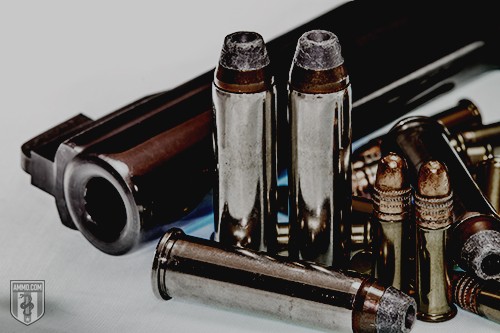 When you’re building defenses for your off-the-grid home, your chances of being a victim of crime drop to approximately zero. Most crime takes place in big cities and congested areas like New York City or San Francisco. And even those cities have been made relatively safe through a combination of gentrification and police work.
When you’re building defenses for your off-the-grid home, your chances of being a victim of crime drop to approximately zero. Most crime takes place in big cities and congested areas like New York City or San Francisco. And even those cities have been made relatively safe through a combination of gentrification and police work.
Your concern is less common criminals than the roaming hoards of a post-apocalyptic wasteland. Planning for the zombie apocalypse is more of a concern for you than protecting yourself from a home invasion by a local gang. So what are you going to need to protect yourself and your home?
At a minimum, you’re going to need four firearms. However, you might find that, like golf clubs, more is better:
- Bolt-Action Rifle: This is the gold standard for putting food on the table and shooting targets at a very distant range. They’re also easy to clean and to maintain.
- Shotgun: The shotgun is primarily a home defense weapon that’s going to help you to maintain your homestead against intruders, armed or otherwise.
- Semi-Automatic Rifle: A semi-automatic rifle with a large magazine capacity is essential for defending your home and your family against large groups of intruders.
- Handgun: It’s good to have a weapon on you at all times if you can, as you never know when danger is going to strike. That’s what a handgun is for.
Of course, none of your firearms are going to be any good without a supply of ammunition to keep you locked and loaded. How much do you need? Having 1,000 rounds of ammunition for each firearm isn’t a bad start. For all of your magazine-fed weapons, keep about half a dozen for each.
Hopefully all you end up shooting are game, paper and beer cans. But remember, when you’re off the grid, you need to be more prepared. Preparation is key – not knowing how to use a weapon properly makes it about as effective as defending yourself with a paperweight.
Protecting your property with non-lethal forms of defense is another important factor, but keep in mind that electricity use needs to be limited when living off the grid. Sentry systems and other security systems are great to have, but are too much of a drain on your power supply. At the very least, having a couple of dogs around to patrol the property is a good idea – not to mention a fun one. Rhodesian Ridgebacks, Bullmastiffs and other dogs bred to prevent poachers make the best sentries. They’ll disable an intruder without killing or mailing. In fact, Bullmastiffs were bred to pin attackers down.
Off Grid Power, Plumbing, and Communication
Remember that, even if the entire system does collapse, the primary purpose of your off-grid home is for living and having an enjoyable life with your family. So how do you make your off-grid house a home?
FIrst, you need to remember the electrical challenges of being off the grid. The closer together everything is, the less electricity is required and the less you have to spend on heating your home. Also, a larger home costs more money to heat (and to build) – which is why you should keep your space compact. When it comes to off-grid living, less is more. Besides, the smaller footprint your house takes up, the more money you have for growing crops and other integral parts of living.
Sit down and sketch out a floor plan. Even if you’re not an architectural designer, you’ll get some sense of what your home is going to look like.
Electric
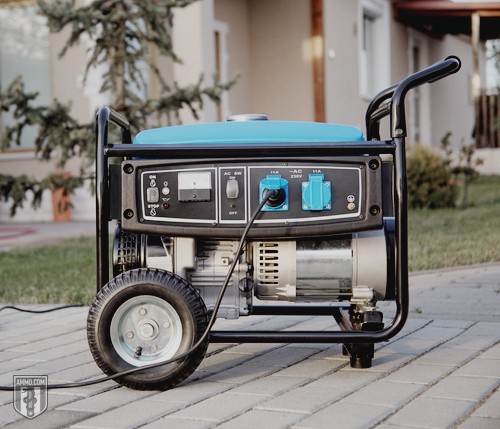 Here’s where things start getting complicated: You need to be able to get clean water in and waste water out. You need to have a warm place to hang your hat. And you probably need some kind of electricity. Like the saying goes, with great power comes great responsibility. The freedom that you’re going to enjoy will be great, but it’s going to require you to take responsibility for a lot of things you’re currently outsourcing to other people.
Here’s where things start getting complicated: You need to be able to get clean water in and waste water out. You need to have a warm place to hang your hat. And you probably need some kind of electricity. Like the saying goes, with great power comes great responsibility. The freedom that you’re going to enjoy will be great, but it’s going to require you to take responsibility for a lot of things you’re currently outsourcing to other people.
Let’s start with power. You might decide to live like the Amish and have no electricity at all (if they can do it, why can’t you?). But let’s assume you want to live more relentlessly in the modern world. The first thing you need to do is figure out how much power you’re going to use. Then you can attempt one of the most complicated parts of living off-grid – assembling an off-grid electrical system.
- Add up wattages on all the appliances you plan to use and add 50 percent.
- You’re going to need that extra wattage capacity, unless you want everything to collapse when you tax it.
- A 6000W system is going to cover most power needs.
Your power needs are going to add up quickly. Get used to only running one appliance at a time (even the humble toaster can eat up as much as 1500W). Some of the larger appliances such as water heaters, electric stoves and air conditioners just don’t exist in off-grid homes. That’s where you’re going to save enough to stay underneath the cap on your power supply.
Now there’s the small question of how you get the power there in the first place. You’ve got a few options:
- Solar Panels: This is where you’re going to get most of your power. They get more affordable every year, so you can get a good amount of your power from this source. Unless you decide you want to live off-grid somewhere with no sun, this will do your heavy lifting for you.
- Windmills: If you live somewhere windy, this can be your workhorse – or it can fill in the gaps between the solar panels and the rest of your power needs. For the most part, these are going to be a supplement to a solar system.
- Generators: Generators run on propane, gasoline and diesel. And while they’re not a solution for most of your power needs, they’re a way for you to bridge the gap – especially when requiring more power than normal, like operating a water pump or going through a long cloudy spell without the juice to keep things running.
- Hydroelectric: If you have a stream or river running through your property, you’d be foolish to not have one of these onsite, helping you to power your home.
- Bicycle: Yes, you can generate electricity using a stationary bicycle – probably enough for your laptop and a CFL bulb (double that for a Tour De France cyclist).
Plumbing
First, make sure that you’re draining at the right angle to prevent clogging. Second, heating water with an electric heater is impossible, so you’re going to need something solar or something that burns a lot of propane. As with most off-grid living solutions, it’s going to be a mix of the two. Some people choose not to have plumbing at all.
Communication
Even though you’re not living among society, you’re probably still going to want to communicate with them. This means you’re going to need phone and Internet systems in your home. While most places off the grid have bad cell coverage, landline phones don’t eat any power up. In. Most boosters aren’t going to do anything to change that, which is why lots of people use satellite phones and Internet. The cost is coming down and efficiency is going up, but you’re going to be using more electricity and getting less privacy. Ultimately you have to make the call.
Living off the grid is hard – especially when you’re getting started. But when you ask yourself if the life you’re living now is easy, you will realize the freedom that comes with being completely self-sufficient. Living off the grid means living for yourself, making you far better prepared for difficult times than you would be living in the city.
Preparedness
- Natural Disaster Survival Guide: Your Emergency Checklist
- Emergency Food Supply And Storage: The Survival Guide
- How to Prepare For Flooding: A Guide to Flood Survival
- How to Prepare for a Hurricane: A Survival Guide for Tropical Disasters
- Wildfire Safety Tips: The Ultimate Guide to Heatwave Safety and Preparedness
- Earthquake Survival Guide: How to Prepare for and Survive an Earthquake
- How to Survive a Tsunami: An Expert Tsunami Survival Guide
- How to Survive If the Power Grid Goes Down: Power Grid Failure Preparedness Guide
- How to Prepare for a Tornado: The Definitive Safety Guide
- How to Survive a Terrorist Attack: Prepare, Plan, and Survive
- Living off the Grid? These 8 Essential Off Grid Living Tips Will Help
- Surviving in the Outdoors: An Emergency Guide
- Ammo Storage: How to Store Ammo and Transport it Safely
- Top 27 Online Resources for Survivalists and Preppers
- Cold Weather Preparedness: A Guide to Winter Weather Survival
- Wildcat Cartridges: A Guide to Wildcatting and Customized Rounds
- Get Paid $1,200 to Watch the 12 Best Prepper Movies as You Self-Quarantine to Avoid COVID-19
